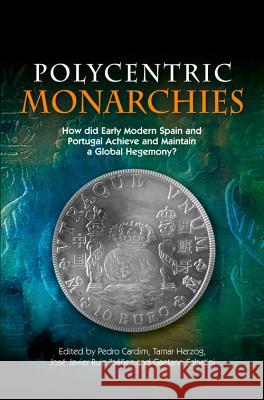Polycentric Monarchies: How Did Early Modern Spain and Portugal Achieve and Maintain a Global Hegemony? » książka
Polycentric Monarchies: How Did Early Modern Spain and Portugal Achieve and Maintain a Global Hegemony?
ISBN-13: 9781845196813 / Angielski / Miękka / 2014 / 224 str.
Polycentric Monarchies: How Did Early Modern Spain and Portugal Achieve and Maintain a Global Hegemony?
ISBN-13: 9781845196813 / Angielski / Miękka / 2014 / 224 str.
(netto: 183,75 VAT: 5%)
Najniższa cena z 30 dni: 169,61
ok. 30 dni roboczych.
Darmowa dostawa!
Having succeeded in establishing themselves in Europe, Asia, Africa, and the Americas, Spain and Portugal became the first imperial powers on a worldwide scale in the early 16th century. Although they lost their political primacy in the 17th century, both monarchies survived and enjoyed relative success until the early 19th century. The aim of this collection is to answer the question how and why their cultural and political legacies persist to date. Part I focuses on the construction of the monarchy, examining the ways different territories integrated in the imperial network mainly by inquiring to what extent local political elites maintained their autonomy, and to what a degree they shared power with the royal administration. Part II deals primarily with the circulation of ideas, models, and people: the melting pot in which the various administrations that served the Kings and the various monarchical territories developed their own identities, fought for recognition, and for what they considered their proper place in the global hierarchy. Part III explains the forms of dependence and symbiosis established with other European powers, such as Genoa and the United Provinces. The essays compiled here discard the portrayal of the Iberian monarchies as the accumulation of many bilateral relations arranged in a radial pattern, arguing that these political entities were polycentric, allowing for the existence of many different centers that interacted and thus participated in the making of empire.











